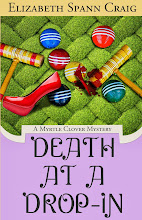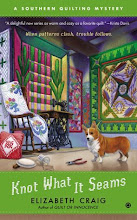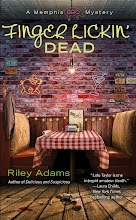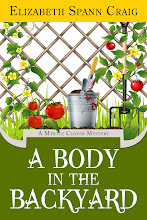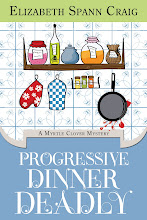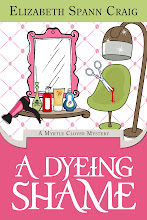by Jessica Park, @JessicaPark24
 I am an unapologetic fan of self-publishing. Massive, foam finger-waving fan. But, for the record, I realize that it’s not for everyone. Big publishers have obvious distribution and marketing power that authors don’t have. They edit your books, provide covers, and more. Well, sometimes more.
I am an unapologetic fan of self-publishing. Massive, foam finger-waving fan. But, for the record, I realize that it’s not for everyone. Big publishers have obvious distribution and marketing power that authors don’t have. They edit your books, provide covers, and more. Well, sometimes more.
But there are huge downsides: advances are minimal these days, royalty rates are crummy, and we wait a year or more after a book as been accepted to see that book go up for sale.
The money, let’s face it, is often completely crummy. Terrible. Pitifully small amounts dolled out over time and delivered alongside truly incomprehensible royalty statements. Did I try to sell FLAT-OUT LOVE to a publisher? Yep. For me, there was still something to be said for having a big publishing house stand behind your work, so I thought it was worth seeing what kind of offers I could get. I wanted that New York validation. I wanted to hear, “We want you.”
My agent loved this book and was confident that she could sell it. Editors loved this book, too. But what I heard over and over from publishers were two things: 1. The heroine is eighteen years old and categorically too old for a young adult book, and 2. (I’m not making this up.) There are no vampires. “Realistic fiction” has taken a dive in the market and nobody cares about real people.
Okay, I’m paraphrasing that second one, but that’s the gist of it. Look, I enjoy a good vampire story, too, but that doesn’t mean that… Oh, whatever. Then I had editors from adult divisions saying that, while there was so much to love about the book, and it really “resonated” with them, the heroine is too young for mainstream fiction, and they didn’t know what they could possibly do with my little book. (I had a few ideas about what they could do with the book, but I’ll keep those to myself.) This all seemed silly to me. Am I the only person to have written a book about a college freshman? It’s such a pivotal time in life. Why is this age so shunned in the publishing industry? Flat-Out Love is a unique story, but very often publishers don’t want unique. They don’t want to take on what they consider to be a “risk.” They want as close to a “guaranteed” bestseller as possible.
So I was annoyed. And really angry. I hate, absolutely HATE having to tout my own book, but the truth was that I knew I had written a very strong book, and I knew that it deserved to be published. The feedback I got from publishers about my book confirmed for me how totally out of touch they were with readers because I knew, absolutely knew, that there would be an audience for my story. Before I had heard back from more publishers (a girl can only take “I’m head-over-heels for this book but we won’t buy it” so many times), I decided to self-publish. The rejections I’d amassed from pubs were, in almost every way, an enormous relief. I’d felt an obligation, almost, to try for a big New York deal. That was dumb. It was solely an ego thing. I realized that I’d been dreading getting into a relationship with a publisher, and I cared about this book too much to give it away for a next-to-nothing advance and then be forced to wait however long to get it on shelves, where it would then likely be hideously overpriced. I love my agent, and it was a little tough to tell her what I was doing, but I knew that I had to make a business decision. As much as I love her, I couldn’t leave the book with her just because she’s such an awesome person. That would’ve been crazy.
Self-publishing gives you massive control over your own work, which I find incredibly appealing. I get to choose my price and cover, and I can make changes to those and to the text at any point. I’m in charge of everything. I get paid monthly, whereas large publishers pay you (theoretically) every six months, and only after you’ve earned out your advance.
The book has been out for a year now, and I’ve sold over 75,000 copies. I have made more money on this book than I made writing five books for a large publishing house. A lot more. I obviously can’t guarantee these numbers for every self-published book, but even if you sell a fraction of this, you can still earn good money. I’ve put up one other full-length novel, RELATIVELY FAMOUS, and three e-shorts, and I have zero regrets. Like anything, self-publishing is a learning process, but once you get the hang of it, it’s plenty of fun.
The three most important things to focus on if you go this route are: 1. Get a strong cover. If your book isn’t selling, change it. And then change it again if you want. 2) Price your book smartly. I wouldn’t do anything over $3.99—maybe, maybe $4.99--for an ebook. 3) Pay for a good editor. Or more than one good editor. Don’t put up a totally sloppy book. Even professionally copyedited books have errors, and we’ve all read books published by a huge house that have mistakes. It happens. But you run a much greater risk of errors trying to proofread your own work. I cannot tell you how many times I have read my own book and missed blatant mistakes. You need to get as many people as possible to read you work, including non-professionals (who are great at catching missing words!), because it’s impossible to see typos and such in your own work. I’m sure I still have some. But it’s not a frightful mess. You’ll be doing your own marketing. Frankly, you’d be doing this anyway (unless, that is, you’re already such a huge success that you can just sit back and watch your sales numbers skyrocket). Bloggers are the powerhouse of reviews these days. I thought that writers were a generous bunch, but even that incredible group is getting a run for their money because book bloggers routinely offer to do whatever they can to promote your book. It’s really amazing. As the population as a whole is learning so much about the book industry (note: See six million articles about Amanda Hocking and Barry Eisler), bloggers and readers are becoming much more open to reviewing and buying self-published ebooks. More often than not, if you ask, bloggers will help and readers will buy.
The market for self-published books is growing, and more and more readers are finding that self-published books are not junk books that were haphazardly uploaded because they weren’t good enough to be traditionally published. Talented, skilled authors are choosing this route and intentionally bypassing the exhausting, often miserable, experience of working for a publisher.
Do I have plans to seek out a New York publisher again? No. Of course, after everything I’ve posted online about them, I can’t imagine that they’d want me anyway. That’s fine. I like working for myself. I have no deadlines, no one to answer to, no nodding and smiling at tragic covers, no wincing when my ebook is priced at $9.99…. None of that.
I am free, I am empowered.
There are some truly wonderful, talented, supportive people who work in publishing. Some authors have great experiences with houses. I can’t, offhand, think of any (Kidding! Kidding! Sort of….) but I’m sure there are some. What I unfortunately hear most often are the ways in which authors are struggling with their publishers, and I have friends who have nearly stopped writing because of what they’ve suffered at the hands of publishers. This is not an exaggeration; it is a painful reality for many authors.
When you sell your book to a publisher, that book is gone. These days, you are unlikely to ever get the rights back, and you will have no control over what they do with it. You may be okay with that, and you may prefer to have someone else in charge of your book. Now that I know what self-publishing can do for me, I’m not vaguely okay with that. I’m happy… ecstatic, actually… to be in such creative control of my work.
I’m writing another novel now, and I realized the other day that had I been contracted for a few books through a publisher, I could not write the story that I’m working on now. This book has stronger language and sexual content that puts it into a different category from Flat-Out Love. I know my readers, I know my audience, I know my market. I know what’s selling. I have a story that I want to tell, and I do not want to be controlled by the constraints of a publisher who in all likelihood would never allow me to stray this far from Flat-Out Love. I’m also working with a small app group and we are building an incredibly innovative enhanced edition of the book that will be loaded with multimedia and interactive and immersive elements. I also couldn’t have done that if I’d been contracted to a publisher.
It’s my book, it’s all mine. And I love that.
 Jessica Park is the author of the young adult novel RELATIVELY FAMOUS, five Gourmet Girl mysteries (written as Jessica Conant-Park) , FLAT-OUT LOVE, and the e-shorts FACEBOOKING RICK SPRINGFIELD and WHAT THE KID SAYS (Parts 1 & 2).
Jessica Park is the author of the young adult novel RELATIVELY FAMOUS, five Gourmet Girl mysteries (written as Jessica Conant-Park) , FLAT-OUT LOVE, and the e-shorts FACEBOOKING RICK SPRINGFIELD and WHAT THE KID SAYS (Parts 1 & 2).














